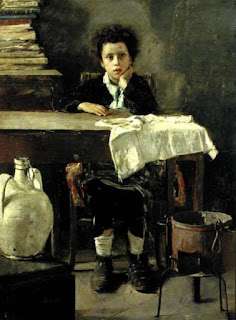
And now we come to a turning-point in the career of Santa Claus, and it
is my duty to relate the most remarkable that has happened since the
world began or mankind was created.
We have followed the life of Claus from the time he was found a helpless infant by the Wood-Nymph Necile and reared to manhood in the
great Forest of Burzee. And we know how he began to make toys for
children and how, with the assistance and goodwill of the immortals, he
was able to distribute them to the little ones throughout the world.







